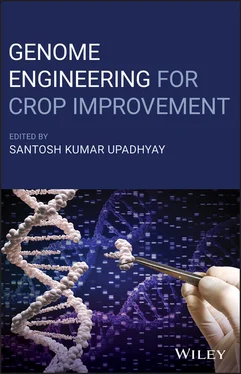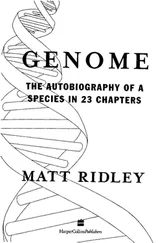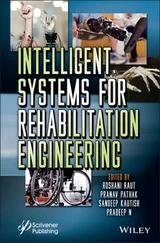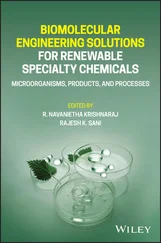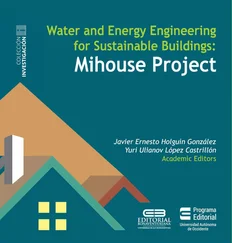Harpal SinghDepartment of Nematology University of California Riverside CA, USA
Sudhir P. SinghCenter of Innovative and Applied Bioprocessing (DBT‐CIAB) Mohali Punjab, India
Vinayak SinghPlant Molecular Biology and Genetic Engineering Division CSIR‐National Botanical Research Institute Lucknow Uttar Pradesh, India
Inez H. Slamet‐LoedinTrait and Genome Engineering Cluster Strategic Innovation Platform International Rice Research Institute Manila, Philippines
Praveen SoniDepartment of Botany University of Rajasthan Jaipur Rajasthan, India
SushmitaMolecular Biology and Biotechnology Council of Scientific and Industrial Research National Botanical Research Institute (CSIR‐NBRI) Lucknow Uttar Pradesh, India Academy of Scientific and Innovative Research (AcSIR) Ghaziabad Uttar Pradesh, India
Rakesh SrivastavaMolecular Biology and Biotechnology Council of Scientific and Industrial Research National Botanical Research Institute (CSIR‐NBRI) Lucknow Uttar Pradesh, India
Siddharth TiwariNational Agri‐Food Biotechnology Institute (NABI) Department of Biotechnology Ministry of Science and Technology (Government of India) Mohali Punjab, India
Prabodh Kumar TrivediCSIR‐National Botanical Research Institute Council of Scientific and Industrial Research (CSIR‐NBRI) Lucknow Uttar Pradesh, India Academy of Scientific and Innovative Research (AcSIR) Ghaziabad Uttar Pradesh, India CSIR‐Central Institute of Medicinal and Aromatic Plants (CSIR‐CIMAP) Lucknow Uttar Pradesh, India
Johannes Tuen van ElterenNational Institute of Chemistry Ljubljana, Slovenia
Santosh Kumar UpadhyayDepartment of Botany Panjab University Chandigarh, India
Chandrama Prakash UpadhyayaLaboratory of Plant Molecular Biology Department of Biotechnology Dr Harisingh Gour Central University Sagar Madhya Pradesh, India
Chirag UppalSchool of Agricultural Biotechnology Punjab Agricultural University Ludhiana Punjab, India
Primož VavpetičJozef Stefan Institute Ljubljana, Slovenia
Srividhya VenkataramanCell and Systems Biology University of Toronto Toronto Ontario, Canada
Praveen Chandra VermaMolecular Biology and Biotechnology Council of Scientific and Industrial Research National Botanical Research Institute (CSIR‐NBRI) Lucknow Uttar Pradesh, India Academy of Scientific and Innovative Research (AcSIR) Ghaziabad Uttar Pradesh, India
Katarina Vogel‐MikušBiotechnical Faculty University of Ljubljana Ljubljana, Slovenia Jozef Stefan Institute Ljubljana, Slovenia
Tian WangKey Laboratory of Food Nutrition and Safety of Shandong Normal University College of Life Science Shandong Normal University Jinan, China
Santosh WatpadeICAR‐IARI Regional Station (CHC) Shimla, 171004, India
Amit YadavZuckerberg Institute for Water Research (ZIWR) Ben‐Gurion University of the Negev Israel
Afifa YounasDepartment of Botany Lahore College for Women University Lahore, Pakistan
Kashaf ZafarAgricultural Biotechnology Division National Institute for Biotechnology and Genetic Engineering (NIBGE) Constituent College of Pakistan Institute of Engineering and Applied Sciences Faisalabad, Pakistan Department of Biotechnology Balochistan University of Information Technology Engineering and Management Sciences (BUITEMS) Quetta, Pakistan
Hongyan ZhangKey Laboratory of Food Nutrition and Safety of Shandong Normal University College of Life Science Shandong Normal University Jinan, China
Hongliang ZhuCollege of Food Science and Nutritional Engineering China Agricultural University Beijing, China
About half of the world population is suffering from nutritional deficiency, which is due to either improper diet uptake, or non‐availability and unaffordability of balanced nutritive food. Therefore, nutritional enrichment of common food items has been of great interest to fulfill the demands of nutritional deficiency. For instance, development of carotenoids‐rich banana and tomato, and iron‐rich rice and wheat has been proposed to solve major issues of vitamin A deficiency and anemia. Further, the distribution of important mineral elements in grains is also a major challenge for their bioavailability. For example, the majority of elements like iron are enriched in the aleurone layer of wheat grain and, therefore, it is not in flour for consumers. These are the major challenges which can be addressed by utilizing genome‐engineering mechanisms.
Genome engineering has been evolved as an efficient method for targeted mutation and modification in the genome of various organisms. During the last decade, genome engineering has been utilized for numerous trait improvement programs in several important crop plants. Genome‐engineering tools like ZFNs, TALENs, and CRISPR‐Cas system have been used for in‐vivo gene editing, as well as much biological pathway engineering for the nutritional improvement of various agricultural and horticultural crop plants. They have been of greater interest due to their precise editing mechanisms and very high specificity. Over the past few years, they have been utilized in numerous agricultural and horticultural crop plants including rice, wheat, legumes, tomato, potato, banana, grapes, etc. They are found to be highly specific and precise in their function. They have also been used for the engineering of numerous metabolic pathways to develop nutrient‐rich produce. They are used to decrease the anti‐nutrients in crop plants to improve bioavailability of minerals and vitamins, development of zero calorie/ sugar‐free potato, indigestible starch‐rich grains, allergenic gluten‐free wheat and various other processes. Further, they can also be used for the mobilization of minerals from unavailable locations to the bioavailable location for grains.
Researchers have been working hard to increase the nutritional value of various important crop species by increasing the nutraceuticals and minerals such as carotenoids and flavonoid‐rich cereals, tomato and fruit crops, iron‐enriched rice, maize, and wheat, etc. On the other hand, people are also working to decrease the anti‐nutrients such as phytic acids and other chelating elements in crops to increase the bioavailability of the available micronutrients. Further, development of sugar‐free potato and gluten‐free wheat, resistant starch rich rice and wheat is in great demand by people suffering from various diseases or as preventive measures.
The development of new strategies to cope up with the various challenges has always been a top priority over recent years. Agronomical practices, chemical applications, biofortifications and transgenic expression of protein‐coding genes have been explored to alleviate these problems to some extent. However, new and specific technology is always in demand. Genome engineering can be the best alternative for nutritional improvement of agricultural and horticultural crops. Further, it will be highly specific to a particular gene and plant, therefore, it has minimal bio‐safety risk. Taking this, together with progress made in crop improvement using genome engineering methods, this book has covered all the recent knowledge and development in the area related to the nutritional value, mineral and nutrient localization, and engineering for stress resistance as well as nutritional improvement of various crop plants. None of the currently available books have covered this topic at such a broad scale. Further, this area is of tremendous importance, not only in the present scenario but also for future decades.
Читать дальше
